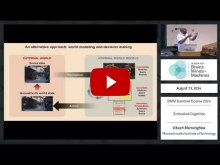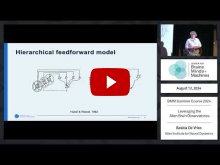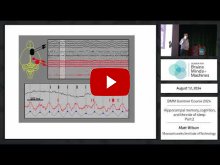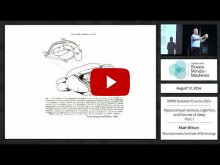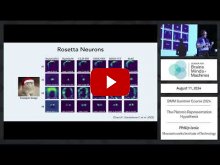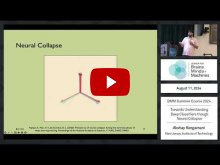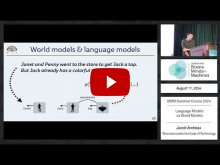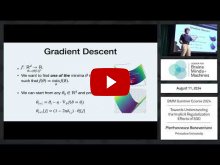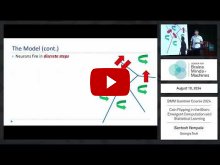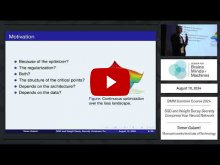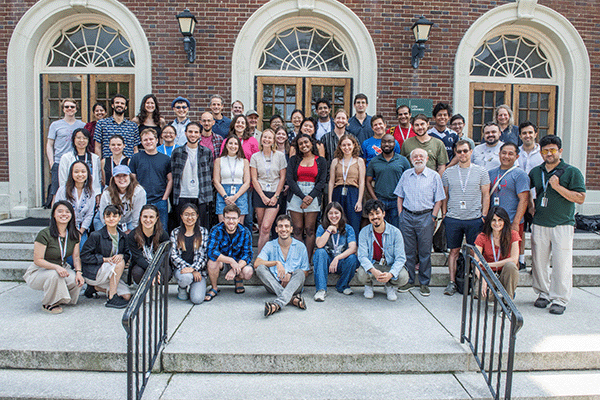
Directors:
- Gabriel Kreiman, Boston Children’s Hospital, Harvard Medical School;
- Boris Katz, Massachusetts Institute of Technology; and
- Tomaso Poggio, Massachusetts Institute of Technology
Location: Marine Biological Laboratory, in Woods Hole, MA.
Course Dates: August 4 – August 25, 2024
Application: Please visit the MBL website to access the application portal: https://www.mbl.edu/education/advanced-research-training-courses/course-...
Application deadline: March 20, 2024
Schedule: BMM Summer Course Schedule PDF (8/16/2024 v2)
Resources:
A CBMM Learning Hub: Summer Course mini-site on the CBMM Learning Hub, with supporting materials from past BMM Summer Courses (2016 - 2020) has been created as a resource for BMM Summer Course students to help supplement and review materials.
Course Description
The basis of intelligence – how the brain produces intelligent behavior and how to endow machines with human-like intelligence – is arguably the greatest problem in science and technology. To solve it, we will need to understand how natural intelligence emerges from computations in neural circuits, with rigor sufficient to reproduce similar intelligent behavior in machines. Success in this endeavor will ultimately enable us to understand ourselves better, to produce smarter machines, and perhaps even to make ourselves smarter. Today’s AI technologies are impressive but quite different from human intelligence. We still do not understand the mechanisms underlying the robustness, the generalization, and the continual learning capabilities of biological intelligence. The synergistic combination of cognitive science, neurobiology, engineering, mathematics, and computer science holds the promise of significant progress. Elucidating how human intelligence works will in turn lead to more sophisticated AI algorithms. The goal of this course is to help produce a community of leaders that is equally knowledgeable in neuroscience, cognitive science, and computer science and will lead the scientific understanding of intelligence and the development of true biologically inspired AI.
The class discussions will cover a range of topics, including:
- Neuroscience: neurons and models
- Computational vision
- Biological vision
- Machine learning
- Bayesian inference
- Planning and motor control
- Memory
- Social cognition
- Inverse problems & well-posedness
- Audition and speech processing
- Natural language processing
These discussions will be complemented in the first week by MathCamps and NeuroCamps, to refresh the necessary background. Throughout the course, students will participate in workshops and tutorials to gain hands-on experience with these topics.
Core presentations will be given jointly by neuroscientists, cognitive scientists, and computer scientists. Lectures will be followed by afternoons of computational labs, with additional evening research seminars. To reinforce the theme of collaboration between (computer science + math) and (neuroscience + cognitive science), exercises and projects often will be performed in teams that combine students with both backgrounds.
The course will culminate with student presentations of their projects. These projects provide the opportunity for students to work closely with the resident faculty, to develop ideas that grow out of the lectures and seminars, and to connect these ideas with problems from the students’ own research at their home institutions.
This course aims to cross-educate computer engineers and neuroscientists; it is appropriate for graduate students, postdocs, and faculty in computer science or neuroscience. Students are expected to have a strong background in one discipline (such as neurobiology, physics, engineering, and mathematics). Our goal is to develop the science and the technology of intelligence and to help train a new generation of scientists that will leverage the progress in neuroscience, cognitive science, and computer science.

